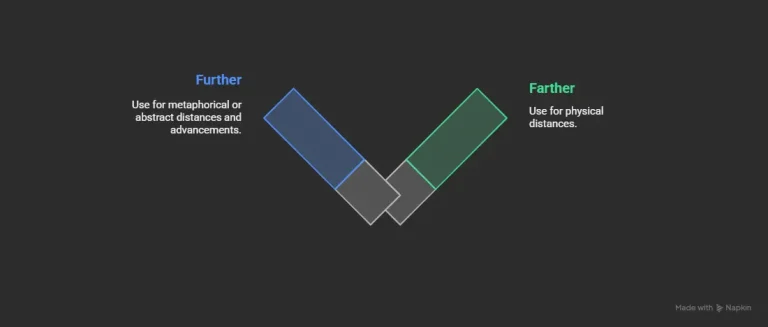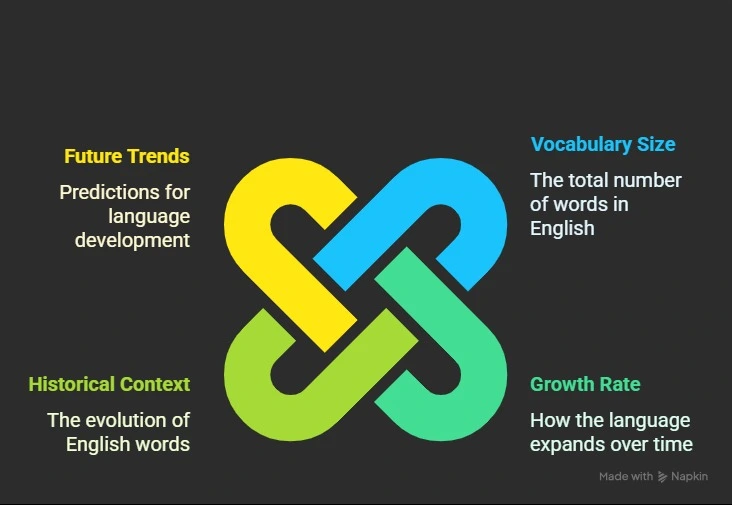
Affect vs Effect: The Complete Guide to Using These Commonly Confused Words Correctly
Do you freeze when deciding between affect and effect or affection vs effection in your writing? You are not alone. This pair ranks among the most confusing words in English. A study by Grammarly found that affect and effect confusion appears in the top five grammar mistakes writers make. Let’s clear up this common mix-up once and for all.
Introduction: Why Affect and Effect Cause So Much Confusion
This affect vs effect trick terms look alike, sound familiar, and relate to similar concepts. Their closeness creates a perfect storm of confusion for writers at all levels. These words trip people up because of their similarity in spelling and meaning, explains Br. Paul Brians, author of Common Errors in English Usage. Both involve the concept of change or influence.
Even professional writers struggle with them. A 2023 survey of journalism students found that 68% regularly second-guess their affect / effect choices. The good news? Once you learn the core difference, you’ll handle words with confidence.
The Simple Rule: Affect vs Effect
The simple rules for Affect vs effect, which to use when is as follows
Affect as a Verb: Creating Change or Influence
Most often. Affect works as a verb meaning to influence or to cause change. When something changes, something else. It affects it. The “a” in affect matches the “a” in action. A helpful way to remember its role as an action word. Here are examples showing the affect in action.
• Cold weather affects my mood during the winter months.
• These new tariffs will significantly affect trade with China.
• Lack of sleep affects your ability to concentrate.
• How did the movie affect you emotionally?
• Climate change affects many aspects of our daily lives.
Affect often pairs with words like deeply, directly, negatively, or positively to show how something influences something else. According to the Oxford English Dictionary, this usage of affect dates back to the 14th century, showing its deep roots in English.
Effect as a Noun: The Result or Outcome
Efects typically work as nouns, results, outcomes, or consequences. It’s what happens because of an action. Think: The e in effect matches the e in result. Both words contain this letter. Check out these examples of effect as a noun.
• The medicine’s side effects include drowsiness and headaches.
• Her speech had a powerful effect on the audience.
• We studied the effects of pollution on marine life.
• The special effects in that movie looked amazing.
• Stress has many adverse effects on your health.
Common phrases using effect include cause and effect, take effect, in effect, and to the effect. The Chicago Manual of Style advises writers to consider whether they need a noun (effect )or verb (affect )when choosing between these words.
Mastering Usage in Different Contexts
Here are some of the techniques that are used to master the usage of Affect vs Effect impact in different context.
Effect vs Affect in Academic Writing
Academic writing demands precision. Professors notice these mistakes instantly, potentially affecting your grades. In research papers, affect often appears in hypothesis: We examined how light exposure affects plant growth. Effect commonly appears in the results section: The study showed significant effects on patient recovery times. Academic examples:
• The researcher’s bias may affect the study’s validity.
• We measured the effect of caffeine on student performance.
• Economic factors affect educational outcomes for many students.
• The long-term effects of the treatment remain unknown.
According to the Publication Manual of the American Psychologist Association (APA), clarity with these terms shows scholarly precision.
Affect vs Effect in Business Communication
Professional communication requires accuracy. Missing these words in a business context can damage your credibility.
• The new policy will affect all departments immediately.
• We analyzed the marketing campaign’s effect on sales.
• Supply chain disruptions affected our quarterly results.
• Cost-cutting measures showed positive effects on our bottom line.
• How will these changes affect our team’s workflow?
Harvard Business Review notes that precession in business writing correlates with perceptions of competence among executives.
Affect vs Effect in Everyday Language
In daily conversation and casual writing, these words appear constantly. Everyday examples:
• How does caffeine affect your sleep?
• The rain had no effect on our plans for the day.
• Social media affects how people view themselves.
• The interest rate increase will affect your monthly payments.
• Her kindness had a lasting effect on everyone she met.
According to the Pew Research Center survey, 73% of Americans consider good grammar necessary in everyday communication.
Affect vs Effect: Exceptions to the General Rules
Here are some common exceptions to the General Rules for Affect vs Effect.
Effect as a Verb: To Bring About Change
Sometimes, the effect works as a verb, meaning to bring about or to cause to happen. This usage appears less often but remains correct. Examples of effect as a verb:
• The new president hopes to effect change in healthcare policy.
• They effected several improvements to the system.
• The committee will effect these changes by next quarter.
• She worked tirelessly to effect reform in education.
This verb effect usually appears with the words change or similar terms like solution improvement or reform. Merriam-Webster Dictionary confirms this usage dates back to the 16th century.
Affect as a Noun: Emotional State or Disposition
In psychology, affect functions as a noun describing states or feeling expressions. Examples of affect as a noun:
• The patient displayed a flat affect during the evaluation.
• The doctor noted his positive affect throughout treatment.
• Her affect changed noticeably after receiving the news.
• Researchers studied the connection between hormones and affect.
This specialized usage primarily appears in psychological, psychiatric, and medical contexts.
Special Verb Forms: Affecting vs Effecting, Affected vs Effected
The various forms cause extra confusion. Here’s a quick guide:
• Affecting (ongoing influence): Climate change is affecting polar ice caps.
• Affected (influenced): The storm affected coastal communities.
• Effecting (bringing about): They’re effecting policy changes this year.
• Effected (brought about): The company effected a complete reorganization.

Foolproof Memory Techniques
To get some foolproof memory techniques we have these three widely used methods that makes Affect vs Effect trick concept a much easier one to grab.
The RAVEN Method (Remember: Affect = Verb, Effect = Noun)
How to remember affect vs effect confusion, the RAVEN method is the best. RAVEN stands for Remember Affect=Verb, Effect=Noun. This mnemonic device provides a quick mental check when you’re uncertain. Since affect is a verb most often, the effect typically works as a noun. This covers most situations you’ll encounter.
Action vs Result Method
Connect affect with action; both start with A. The correct effect of the result is that both contain the letter E. This approach works because it ties the words to their functions rather than just their spelling.
Contextual Clues for Choosing the Right Word
Look at surrounding words for hints:
• The often precedes effect (noun): The effect was immediate.
• Will, may, or could often precede affect (verb): This will affect your grade.
Try the replacement test:
• If influence works in the sentence, use affect.
• If the result works in the sentence, use effect.

Affect vs Effect in a Sentence
We bring you some of the most widely used real-world examples for Affect vs Effect.
Current Events Examples
News headlines frequently use these terms. Here’s how they appear in current topics:
• Researchers Study How Social Media Affects Teen Mental Health
• The Economic Effects of Retaliatory Tariffs on U.S. Goods
• Climate Change Affects Agricultural Output Worldwide
• Study Shows Long-Term Effects of Remote Learning
• New Legislation Will Affect Healthcare Coverage for Millions
Everyday Scenarios
These words appear constantly in daily life:
• How will construction traffic affect your commute time?
• This medication may have side effects like drowsiness.
• The rain affected our plans for a picnic.
• I have that effect on you.
• Lack of sleep affects your productivity.
Interactive Learning Tools
To learn the basic Affect vs Effect concept, here are some of the interactive learning tools that will clear your mind for these confusing words.
Affect vs Effect Checker Tools
There are several digital tools that are readily available in the market that can help users catch these mistakes. For example,
• Grammarly’s writing assistant flags affect / effect errors automatically.
• Pro Writing Aid offers specific checks for commonly confused words.
• Hemingway Editor identifies complex sentences and suggests simpler alternatives.
• The Purdue Online Writing Lab (OWL) provides interactive quizzes.
Affect vs Effect Examples in Self-Assessment Quiz
To better understand the meaning and the concept we bring some of the basic Affect vs Effect test for users so that they can have their understanding with these challenging sentences. Here are top ten sentences that will clear your mind after completing the test. Further, the answers to these affect vs effect quiz are mentioned below.
The medication will ________ your drowsiness.
- Affect
- Effect
The ______________ of the medication is drowsiness.
- Affect
- Effect
We hope to _______________ change in the organization.
- Affect
- Effect
The teacher’s criticism _____________ the student deeply.
- Affected
- Effected
The new manager _________________ several policy changes.
- Affected
- Effected
The patient showed a flat ___________ during therapy.
- Affect
- Effect
The storm _______________ the coastal regions severely.
- Affected
- Effected
What ____________ will the announcement have on morale?
- Affect
- Effect
How will this decision ____________ team dynamics?
- Affect
- Effect
The new law ______________ all state residents.
- Affects
- Effects
Answers:
1. Affect 2. Effect 3. Effect 4. Affected 5. Effected 6. Affect 7. Affected 8. Effect 9. Affect 10. Affects
Advanced Tips for Perfect Usage Every Time
We bring some of the advanced tips that will make our users to become perfect in using these Affect vs Effect words every time.
When to Replace with Clearer Alternatives
Sometimes substituting simpler words improves clarity. Instead of affect, try:
• Influence: “How will this influence your decision?”
• Impact: “These changes impact everyone.”
• Change: “Humidity changes how the paint dries.”
• Alter: “This will alter your perspective.”
Instead of effect, try:
• Result: “What was the result of the meeting?”
• Outcome: “We’re pleased with the outcome.”
• Consequence: “Every action has consequences.”
• Impact: “The impact of his words was immediate.”
Proofreading Strategies Specifically for Affect / Effect
Develop targeted proofreading habits:
• Do a specific affect / effect review and pass it through your document.
• Read sentences with these words aloud to check their meaning.
• Circle every instance and verify using the RAVEN rule.
• Use Find/Replace to locate all occurrences for review.
• Check sentences with “the” followed by “affect” – this often signals a mistake.
Affect vs Effect: Frequently Asked Questions
Will it affect me or effect me?
The correct phase is Will it affect me? Since affect is a verb that means influence.
What’s the difference between effected and affected?
Affected means influenced or changed by something. Effected means brought about or implemented.
Can you have a positive affect or a positive effect?
You can have a “positive effect” (noun – a good result). Example: “Exercise has a positive effect on health.”In psychology, someone can show “positive affect” (noun – happy emotional state). Example: “The patient displayed positive affect during therapy.”
What does it say about the affect vs effect Oxford Dictionary?
The Oxford Dictionary defines the main uses as affect (verb) and effect (noun).
What is the difference between side effect vs affect?
A side effect is a specific result (usually undesirable) of an action or treatment, while affect is the act of influencing or impacting something, not the outcome itself.
Conclusion: Mastering These Distinctions for Better Communication
Understanding the difference between affect vs effect strengthens your communication. This knowledge helps you write clearly and build credibility with readers. The basic rule covers most situations: affect is usually a verb (action), and effect is typically a noun (result). Remember the exceptions for specialized contexts. Language evolves, but this distinction remains essential in effective writing.
Keep practicing with real examples; soon, the correct choice will become second nature. As Mark Twain allegedly said, “The difference between the right word and the almost right word is the difference between lightning and a lightning bud. “ choose wisely between affect and effect, and watch your writing shine.




